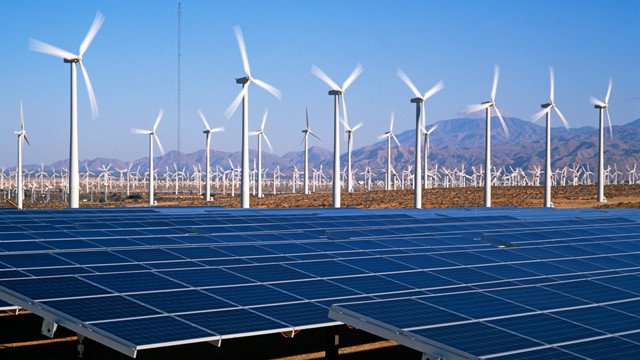Regional energy trade for affordable energy security stressed
Islamabad: Regional energy security can be achieved by building regional energy trade mechanisms and grid and increasing the share of renewable energy can ensure affordable energy for all, said energy experts at a regional policy dialogue titled “Energy Security in South Asia & Transition of Sustainable Sources”. The event was organized by Sustainable Development Policy Institute (SDPI) and Friedrich Naumann Foundation for Freedom Pakistan (FNF).
Birgit Lamm, Director, Pakistan Office, FNF, remarked that 60% of South Asia’s energy demand is imported, increasing vulnerability to external shocks like Russian-Ukrainian War and dollar exchange rate fluctuations. Such factors affect domestic energy prices and potentially fuel energy insecurity, forcing governments and public to make critical expenditure choices between energy or development. Energy is a lifeline for South Asian economies and the issue of high energy bills is a shared regional concern and not limited to Pakistan. Structural challenges in regional energy landscape, combined with demographic shifts hamper sustainable economic growth, she added.
Regional energy challenges are common and collaborative, integrated approach for sustainable , equitable renewable energy transition is the way forward amid rising costs and socio-economic disparities which calls for amplifying efforts for regionally acceptable solutions, said Dr Hassan Daud Butt, Senior Advisor and Research Fellow, SDPI. He stressed for bolstering regional co-operation beyond political conflicts, making responsive energy policies to tackle evolving economic challenges and global trends as means to uplift marginalized and vulnerable communities and ensuring inclusive access to clean energy in South Asia.
Reliance on imported energy sources have created vulnerability to energy supplies and price fluctuations for South Asian countries, as apparent from the impacts of the ongoing regional turmoil. “This has further derailed these countries from the SDG7 targets”, said Ubaid-ur-Rehman, Head of Energy Unit, SDPI.
Ahsan Javed, Research Fellow (Renewable Energy), SAARC Energy Centre referring to a SAARC Energy Centre’s study highlighted the untapped regional energy trade potential which must be leveraged to boost energy security through regional grid. Regional trade of surplus electricity can also increase revenue generation for economic growth, he stressed.
Climate Change impacts disproportionately affect women, particularly in rural areas, who already shoulder an increasing labor burden due to increased migration trends. It is crucial to promote gender supportive energy policies and technologies to alleviate sufferings of women labor, urged Avishek Malla, Energy Specialist, International Centre for Integrated Mountain Development (ICIMOD).
Sunil Dahiya, Energy and Environmental Analyst, Centre for Research on Energy and Clean Air (CREA), remarked that India’s energy landscape is evolving as the share of renewable energy in the national energy mix has increased with renewables constituting about 30% of installed electricity capacity. In the first half of 2023, India avoided using 6million tons of coal as a result, he informed. Despite this, the significant role of cola in energy generation leaves much to be desired, he added.
Harshani Abayawardhan, Energy and Environmental Officer, Centre for Environmental Justice, Sri Lanka apprised that by June 2016, about 98.7% of Sri Lanka’s population had access to national grid electricity. However, 77% of the energy demand is met from petroleum and bio-gas. She highlighted that although government is keen to achieve energy sufficiency from renewables and indigenous energy sources, lack of accurate date will hinder progress. She underscored that Sri Lanka‘s energy sector is challenged due to over-reliance on imported fossil fuels and high energy cost which is further exacerbated by low foreign exchange reserves. She further added that the country lacks R&D and technological capacity to indigenize renewable energy technologies which is worsened due to ineffective institutional structures and high investment needs for infrastructure development in energy sector.
Dr Khalid Waleed, Lead Researcher, Energy Unit, SDPI discussed the energy profiles of South Asian Countries and charted the way forward for energy cooperation by overcoming political-economic barriers, removing tariffs, promoting energy networks, exploring joint financing avenues, joint platform for energy planners and sharing energy and water statistics.


Comments are closed, but trackbacks and pingbacks are open.